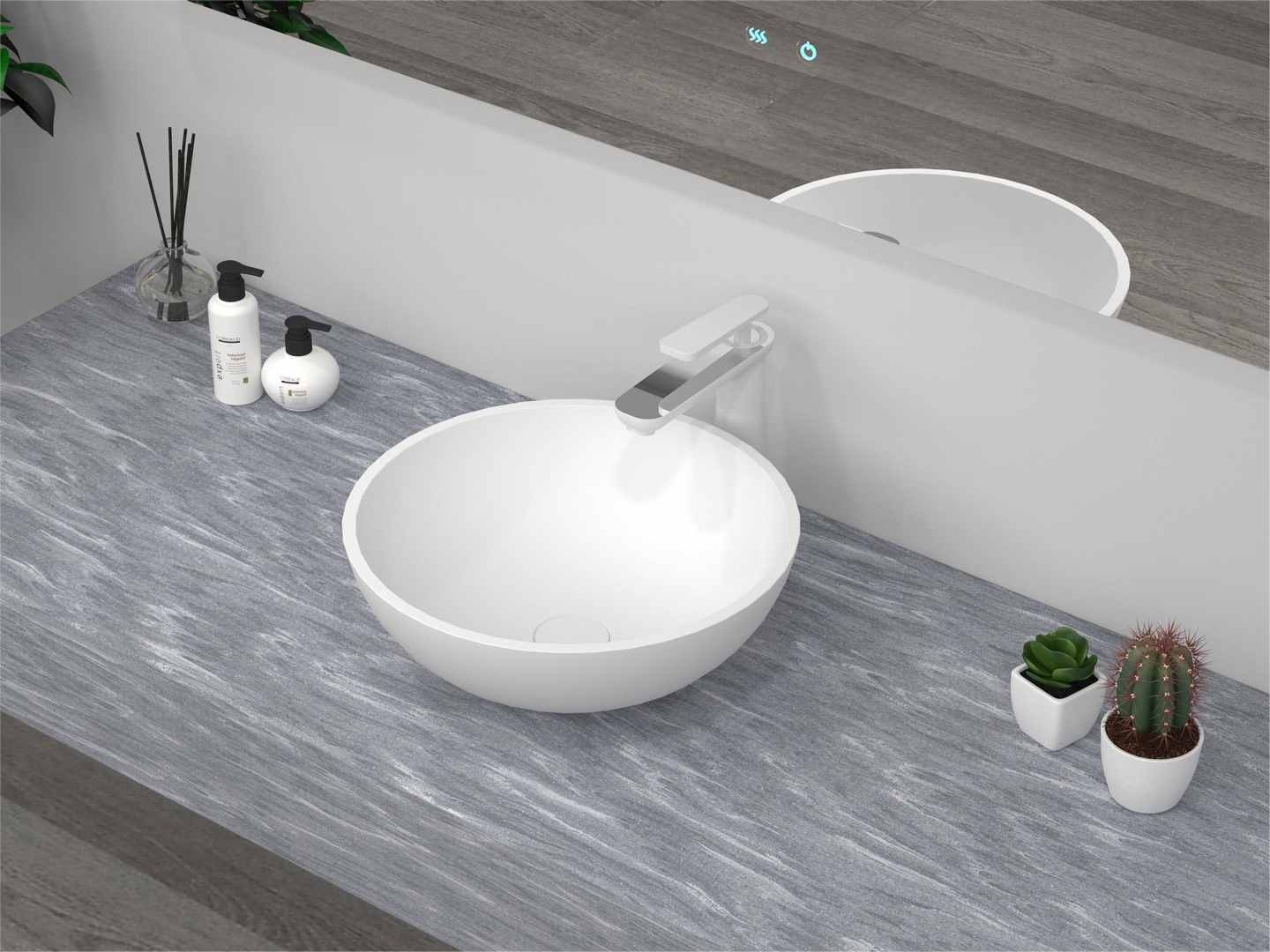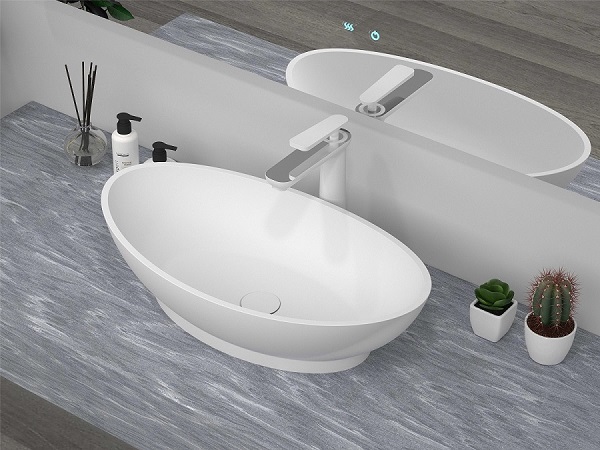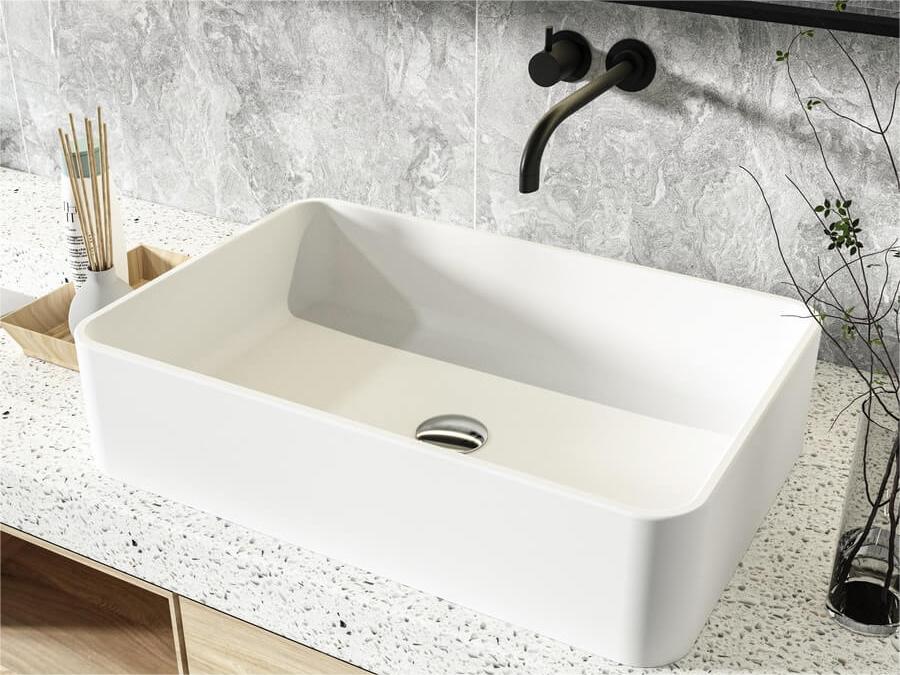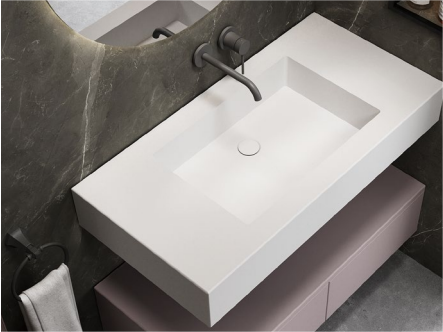5 basic messages for bathroom basin in vanity unit
Introduction
In the realm of contemporary bathroom design, the synergy between functionality and aesthetics plays a pivotal role.
If you're among those seeking insight into enhancing your bathroom space, particularly focusing on the bathroom basin in a vanity unit, you're in the right place.
This article is crafted to illuminate the nuances of the bathroom basin in a vanity unit, offering comprehensive information to meet your curiosity and guide you through the intricacies of this essential element in modern bathrooms.
As we delve into the world of bathroom basin in vanity units, we will define what constitutes a vanity unit basin, clarify the terminology surrounding bathroom sinks and vanities, and provide practical insights on attaching a basin to a vanity unit.
Additionally, we'll explore the distinctions between bathroom sinks and basins, answering the common question: Does a vanity always come with a sink? Furthermore, stay tuned for valuable tips on finding the right bathtub based on the insights gained from understanding the intricacies of the bathroom basin in a vanity unit.

1. What is a Vanity Unit Basin
A vanity unit basin, synonymous with vanity basin or vanity sink, stands as a quintessential component in modern bathroom design.
Seamlessly integrated into a vanity unit, this sink combines practicality with aesthetic allure, serving as a dual-purpose fixture for bathroom spaces.
The fusion of a basin and a storage cabinet within the vanity unit creates a harmonious blend of functionality and style.
In bathrooms or powder rooms, these units emerge as popular choices due to their space-saving prowess and convenience.
Not merely utilitarian, vanity basins elevate the visual appeal of the bathroom, becoming a focal point in the overall design.
Crafted from diverse materials such as porcelain, ceramic, glass, and others, these basins offer a spectrum of stylistic possibilities.
The flexibility in material choices ensures that they seamlessly adapt to various design preferences, enhancing the bathroom's ambiance.

2.Is a Bathroom Wash Basin Called a Vanity
In the intricate realm of bathroom design, clarity on terminology is key. No, a bathroom sink and a vanity are not interchangeable terms.
In the context of a bathroom, the term "vanity" specifically refers to a comprehensive bathroom cabinet that accommodates a sink.
When people mention "vanity basin" or "vanity sink," they are encompassing both the sink and the cabinet or storage space beneath it.
Bathroom Sink:
The bathroom sink, or wash basin, is the basin or bowl-like fixture designated for activities like handwashing and personal hygiene in a bathroom.
It serves as the functional component where water can be collected and drained.
Vanity:
Conversely, a vanity is a holistic piece of bathroom furniture, typically featuring a sink (or basin), a countertop, and integrated storage cabinets or drawers.
The primary role of a vanity is to furnish a convenient and organized space for storing essential bathroom items such as toiletries and towels.
Unlike a standalone sink, a vanity is a unified unit, seamlessly combining the sink with purposeful storage.

3.How to Attach a Basin to a Vanity Unit
Now that we've explored the essence of a vanity basin, the next crucial step is understanding how to seamlessly attach it to a vanity unit.
Follow these step-by-step instructions for a successful installation:
Materials Required:
- Vanity with pre-cut basin holes.
- Basin/sink.
- Faucet
- Plumber's tape or silicone sealant.
- Mounting hardware (screws, brackets, etc.).
Installation Steps
Prepare the Vanity:
Ensure the vanity is in its final position and level.
If the vanity has a pre-cut hole for the basin, ensure it is clean and debris-free.
Place Basin:
Position the basin into the pre-cut hole on the vanity.
Center and align the basin correctly.
Attach Faucet:
Install the faucet following the manufacturer's instructions.
This may involve running the faucet through the pre-drilled hole in the basin and securing it from below.
Securing the Basin:
Depending on the design, use mounting brackets, screws, or other hardware to secure the basin to the countertop.
Adhere strictly to the manufacturer's instructions for your specific lavatory basin and vanity.
Plumber's Tape or Silicone Sealant:
Apply plumber's tape or silicone sealant to create a waterproof seal between the basin and the countertop.
Ensure a thorough application around the edge of the basin where it contacts the countertop.
Connect the Pipes:
Connect the drain and water supply pipes according to the specifications for the basin and faucet.
Follow the manufacturer's instructions for proper installation.
Test for Leaks:
Once everything is installed, turn on the water and check for leaks.
Tighten connections if necessary, ensuring a watertight seal.

4. The Difference Between a Bathroom Sink and a Bathroom Basin
Understanding the distinction between a bathroom sink and a bathroom basin is pivotal for informed design choices.
The fundamental difference lies in their intended areas of application:
Bathroom Sink:
In the United States and Canada, the term "sink" is widely employed to describe the fixture in a bathroom where handwashing and face cleaning occur.
It serves as a catch-all term encompassing various types of basins.
This fixture finds its place not only in bathrooms but also in kitchens and pantries, catering to a broader range of applications.
Bathroom Basin:
Contrastingly, in other regions, notably the United Kingdom and some European countries, the term "basin" is more prevalent.
A basin refers to the bowl-shaped fixture found in bathrooms or washrooms, specifically designed for washing hands and face.
The focus here is on a larger bowl-shaped design, creating a distinction from the more general use of the term "sink."
This distinction in terminology aligns with regional preferences and underscores the diverse design elements associated with each term.
Whether you're opting for a sink in the U.S. or a basin in the U.K., understanding this difference enhances your ability to articulate your design preferences accurately.

5. Does a Vanity Always Have a Sink
Clarifying the terminology around vanities is essential when exploring bathroom design.
In common terms, a vanity encompasses not only the sink but also the countertop, mirror, and the storage surrounding it.
However, there's a crucial distinction – if additional cabinets exist independently of the sink, it doesn't qualify as a complete vanity.
Traditional Definition:
Traditionally, in the context of a bathroom, a vanity refers to a harmonious amalgamation of a sink (or basin), a countertop, and storage space in the form of cabinets or drawers.
The coexistence of these elements creates a unified and functional unit, offering a convenient space for daily grooming essentials.
Understanding that a vanity is more than just a sink is essential. It encompasses the entire ensemble, providing both functionality and a cohesive aesthetic.
When considering bathroom design, this distinction ensures accurate communication of your preferences and needs.
Acknowledging the integral role of vanities in complete bathroom design becomes paramount.

Conclusion
In conclusion, our exploration of the bathroom basin in a vanity unit sheds light on essential facets of contemporary bathroom design.
From understanding the distinct roles of sinks and basins to the meticulous process of attaching a basin to a vanity unit, we've delved into the intricacies of these vital components.
Crucially, the distinction between a bathroom sink and basin, coupled with the nuanced definition of a vanity, ensures informed decision-making in the pursuit of an aesthetically pleasing and functional bathroom space.
For those seeking knowledge on bathroom basin in vanity units, the key inquiries revolve around installation processes, material choices, and the integral role of a vanity beyond its sink component.
This comprehensive guide empowers individuals to make informed choices, elevating their bathroom spaces with both practicality and sophistication.
Welcome to know more detailed information about products in Cpingao:
